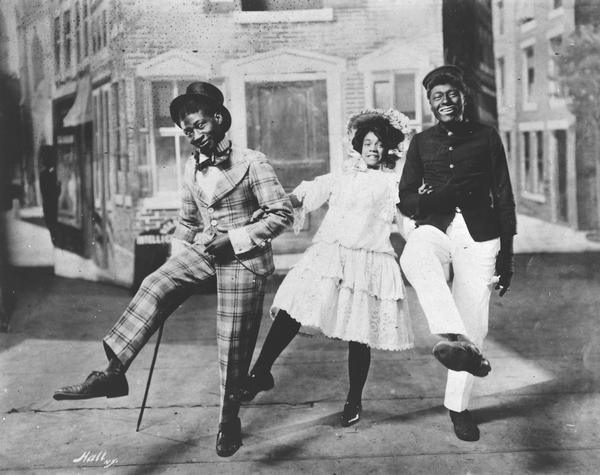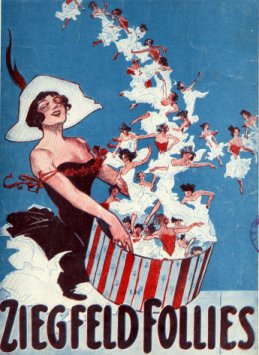|
The Moon Shines On The Moonshine
The Moon Shines on the Moonshine is a song by Francis De Witt (lyrics) and Robert Hood Bowers (music). It was performed by Bert Williams in ''Ziegfeld Follies'' and recorded on an album. Shapiro Bernstein and Co. published sheet music for the song in 1920 in New York City. Williams appears on the songsheet cover in blackface. The Library of Congress and New York Public Library have copies of it. Columbia Graphaphone Company released it on the B side of an album with the song "Somebody" by Williams. Paramount / New York Recording Laboratories also released it. Sidney Phillips recorded it on Victor Records. In 1919, Williams also performed Irving Berlin's "You Cannot Make Your Shimmy Shake on Tea", and the ''Follies'' that year included other prohibition Prohibition is the act or practice of forbidding something by law; more particularly the term refers to the banning of the manufacture, storage (whether in barrels or in bottles), transportation, sale, possession, and consumpt ... [...More Info...] [...Related Items...] OR: [Wikipedia] [Google] [Baidu] |
Robert Hood Bowers
Robert Hood Bowers (24 May 1877 - 29 December 1941) was an American composer, conductor and musical director of operettas and stage musicals, and a conductor and musical director for radio. He composed the musical scores for some of the most popular silent movies, including '' Aloma of the South Seas'' and ''A Daughter of the Gods''. Biography Born and raised in Chambersburg, Pennsylvania, Robert Hood Bowers was the eldest son of Ellen Graham Heyser and Oliver C. Bowers (a district attorney of Franklin County, and nominee for the Democratic Party for Pennsylvania's 17th congressional district for the 1904 elections). When Bowers was 14, he went to the Franklin & Marshall College in Lancaster, graduating in 1896. He started working as head of the Musical Department of Cheltenham Military Academy. At the same time, he continued his musical studies first with Constantin von Sternberg and later with Frederick Grant Gleason at the Conservatory of Chicago, where he won the gold medal i ... [...More Info...] [...Related Items...] OR: [Wikipedia] [Google] [Baidu] |
Bert Williams
Bert Williams (November 12, 1874 – March 4, 1922) was a Bahamian-born American entertainer, one of the pre-eminent entertainers of the Vaudeville era and one of the most popular comedians for all audiences of his time. He is credited as being the first Black man to have the leading role in a film: ''Darktown Jubilee'' in 1914. He was by far the best-selling Black recording artist before 1920. In 1918, the '' New York Dramatic Mirror'' called Williams "one of the great comedians of the world." Williams was a key figure in the development of African-American entertainment. In an age when racial inequality and stereotyping were commonplace, he became the first black person to take a lead role on the Broadway stage, and did much to push back racial barriers during his three-decade-long career. Fellow vaudevillian W. C. Fields, who appeared in productions with Williams, described him as "the funniest man I ever saw—and the saddest man I ever knew." Early life Williams was b ... [...More Info...] [...Related Items...] OR: [Wikipedia] [Google] [Baidu] |
Ziegfeld Follies
The ''Ziegfeld Follies'' was a series of elaborate theatrical revue productions on Broadway in New York City from 1907 to 1931, with renewals in 1934 and 1936. They became a radio program in 1932 and 1936 as '' The Ziegfeld Follies of the Air''. Founding and history Inspired by the Folies Bergère of Paris, the Ziegfeld Follies were conceived and mounted by Florenz Ziegfeld Jr., reportedly at the suggestion of his then-wife, the stage actress and singer Anna Held. The shows' producers were turn-of-the-twentieth-century producing titans Klaw and Erlanger. The Follies were a series of lavish revues, something between later Broadway shows and the more elaborate high class vaudeville and variety show. The first follies, ''The Follies of 1907'', was produced that year at the '' Jardin de Paris'' roof theatre. During the Follies era, many of the top entertainers, including W. C. Fields, Eddie Cantor, Josephine Baker, Fanny Brice, Ann Pennington, Bert Williams, Eva Tan ... [...More Info...] [...Related Items...] OR: [Wikipedia] [Google] [Baidu] |
Blackface
Blackface is a form of theatrical makeup used predominantly by non-Black people, Black people to portray a caricature of a Black person. In the United States, the practice became common during the 19th century and contributed to the spread of Ethnic stereotype, racial stereotypes such as the "happy-go-lucky List of ethnic slurs#D, darky on the plantation" or the "dandy, dandified List of ethnic slurs#Coon, coon". By the middle of the century, blackface minstrel shows had become a distinctive American artform, translating formal works such as opera into popular terms for a general audience. Early in the 20th century, blackface branched off from the minstrel show and became a form in its own right. In the United States, blackface declined in popularity beginning in the 1940s and into the civil rights movement of the 1950s and 1960s,Clark, Alexis.How the History of Blackface Is Rooted in Racism. ''History''. A&E Television Networks, LLC. 2019. and was generally considered highly of ... [...More Info...] [...Related Items...] OR: [Wikipedia] [Google] [Baidu] |
Library Of Congress
The Library of Congress (LOC) is the research library that officially serves the United States Congress and is the ''de facto'' national library of the United States. It is the oldest federal cultural institution in the country. The library is housed in three buildings on Capitol Hill in Washington, D.C.; it also maintains a conservation center in Culpeper, Virginia. The library's functions are overseen by the Librarian of Congress, and its buildings are maintained by the Architect of the Capitol. The Library of Congress is one of the largest libraries in the world. Its "collections are universal, not limited by subject, format, or national boundary, and include research materials from all parts of the world and in more than 470 languages." Congress moved to Washington, D.C., in 1800 after holding sessions for eleven years in the temporary national capitals in New York City and Philadelphia. In both cities, members of the U.S. Congress had access to the sizable colle ... [...More Info...] [...Related Items...] OR: [Wikipedia] [Google] [Baidu] |
Columbia Graphaphone Company
Columbia may refer to: * Columbia (personification), the historical female national personification of the United States, and a poetic name for America Places North America Natural features * Columbia Plateau, a geologic and geographic region in the U.S. Pacific Northwest * Columbia River, in Canada and the United States ** Columbia Bar, a sandbar in the estuary of the Columbia River ** Columbia Country, the region of British Columbia encompassing the northern portion of that river's upper reaches ***Columbia Valley, a region within the Columbia Country ** Columbia Lake, a lake at the head of the Columbia River *** Columbia Wetlands, a protected area near Columbia Lake ** Columbia Slough, along the Columbia watercourse near Portland, Oregon * Glacial Lake Columbia, a proglacial lake in Washington state * Columbia Icefield, in the Canadian Rockies * Columbia Island (District of Columbia), in the Potomac River * Columbia Island (New York), in Long Island Sound Populated places * C ... [...More Info...] [...Related Items...] OR: [Wikipedia] [Google] [Baidu] |
Victor Records
The Victor Talking Machine Company was an American recording company and phonograph manufacturer that operated independently from 1901 until 1929, when it was acquired by the Radio Corporation of America and subsequently operated as a subsidiary called RCA Victor. Headquartered in Camden, New Jersey, it was the largest and most prestigious firm of its kind in the world, probably best known for its use of the iconic "His Master's Voice" trademark and the production, marketing, and design of the popular "Victrola" line of phonographs. After its merger with RCA in 1929, the company continued to make phonographs, records, radios and other products. History In 1896, Emile Berliner—inventor of the gramophone and disc record—contracted machinist Eldridge R. Johnson to manufacture his inventions.Gelatt, Roland, ''The Fabulous Phonograph: 1877–1977'', MacMillan, New York, 1954. Name There are different accounts as to how the "Victor" name came about. RCA historian Fred ... [...More Info...] [...Related Items...] OR: [Wikipedia] [Google] [Baidu] |
Irving Berlin
Irving Berlin (born Israel Beilin; yi, ישראל ביילין; May 11, 1888 – September 22, 1989) was a Russian-American composer, songwriter and lyricist. His music forms a large part of the Great American Songbook. Born in Imperial Russia, Berlin arrived in the United States at the age of five. He published his first song, "Marie from Sunny Italy", in 1907, receiving 33 cents for the publishing rights,Starr, Larry and Waterman, Christopher, American Popular Music: From Minstrelsy to MP3, Oxford University Press, 2009, pg. 64 and had his first major international hit, " Alexander's Ragtime Band", in 1911. He also was an owner of the Music Box Theatre on Broadway. For much of his career Berlin could not read sheet music, and was such a limited piano player that he could only play in the key of F-sharp; he used his custom piano equipped with a transposing lever when he needed to play in keys other than F-sharp. "Alexander's Ragtime Band" sparked an international dance c ... [...More Info...] [...Related Items...] OR: [Wikipedia] [Google] [Baidu] |
Prohibition
Prohibition is the act or practice of forbidding something by law; more particularly the term refers to the banning of the manufacture, storage (whether in barrels or in bottles), transportation, sale, possession, and consumption of alcoholic beverages. The word is also used to refer to a period of time during which such bans are enforced. History Some kind of limitation on the trade in alcohol can be seen in the Code of Hammurabi (c. 1772 BCE) specifically banning the selling of beer for money. It could only be bartered for barley: "If a beer seller do not receive barley as the price for beer, but if she receive money or make the beer a measure smaller than the barley measure received, they shall throw her into the water." In the early twentieth century, much of the impetus for the prohibition movement in the Nordic countries and North America came from moralistic convictions of pietistic Protestants. Prohibition movements in the West coincided with the advent of women's ... [...More Info...] [...Related Items...] OR: [Wikipedia] [Google] [Baidu] |
1920 Songs
Nineteen or 19 may refer to: * 19 (number), the natural number following 18 and preceding 20 * one of the years 19 BC, AD 19, 1919, 2019 Films * ''19'' (film), a 2001 Japanese film * ''Nineteen'' (film), a 1987 science fiction film Music * 19 (band), a Japanese pop music duo Albums * ''19'' (Adele album), 2008 * ''19'', a 2003 album by Alsou * ''19'', a 2006 album by Evan Yo * ''19'', a 2018 album by MHD * ''19'', one half of the double album '' 63/19'' by Kool A.D. * ''Number Nineteen'', a 1971 album by American jazz pianist Mal Waldron * ''XIX'' (EP), a 2019 EP by 1the9 Songs * "19" (song), a 1985 song by British musician Paul Hardcastle. * "Nineteen", a song by Bad4Good from the 1992 album ''Refugee'' * "Nineteen", a song by Karma to Burn from the 2001 album ''Almost Heathen''. * "Nineteen" (song), a 2007 song by American singer Billy Ray Cyrus. * "Nineteen", a song by Tegan and Sara from the 2007 album '' The Con''. * "XIX" (song), a 2014 song by Slipknot ... [...More Info...] [...Related Items...] OR: [Wikipedia] [Google] [Baidu] |






